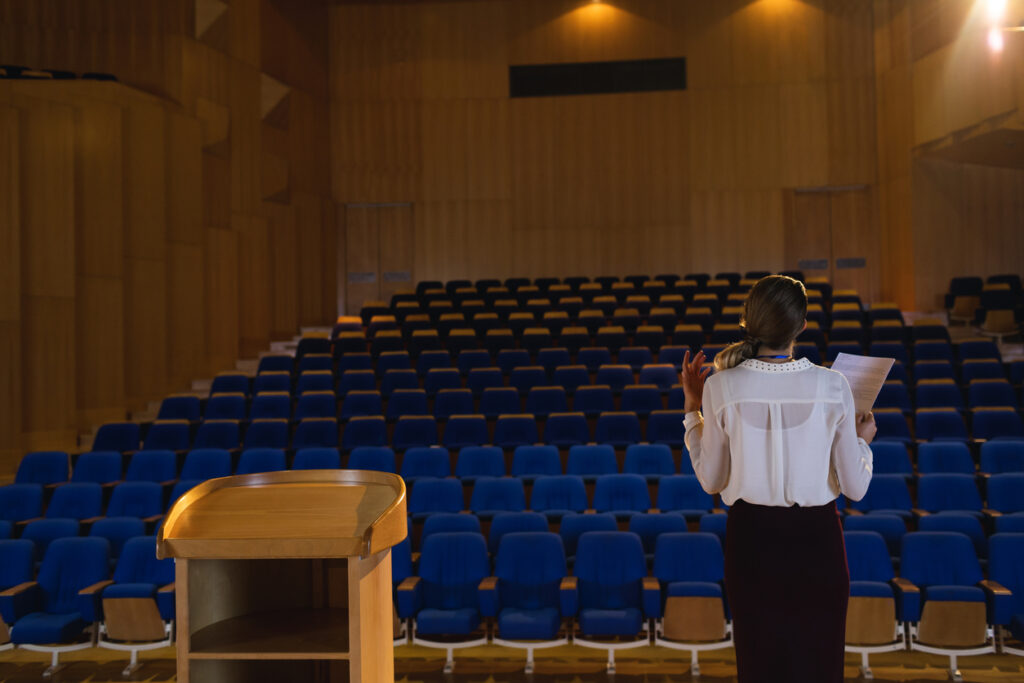I was due to attend a BA event this week that was withdrawn due to lack of bookings. This was gutting on several levels.
Firstly, I was really looking forward to it myself; the content sounded really interesting, the line-up looked great, and it was a chance to catch up with some BA buddies. Secondly, this is a real shame for the organisers and those taking part. Presentations and interactive events take a ton of preparation, to say nothing of the emotional energy they require. Finally, I thought this was a shame for the BA profession as a whole, and indicative of a trend.

It’s a real struggle to attract people to events at the moment. If the event is free and online, a whole bunch of people will sign-up but not show-up. If the event is in-person, even fewer will sign-up. If the event isn’t free, people are reluctant to part with money for it. Those driving communities of practice in their organisations speak of apathy and lack of engagement.
BA teams in organisations across the land are complaining that there’s no money for training. Last month’s BA Conference Europe was brilliant for all those that attended – but tickets and travel are expensive, and attendance is beyond the means of most BAs. A lack of money means finding cheaper ways to develop knowledge, skills, and behaviours, is really important. Surely there’s an appetite for the learning opportunities that BA community events offer – so why is engaging BAs so challenging?
I know from my work volunteering with IIBA’s UK chapter that there are three cohorts who tend to engage with the BA community and the resources it offers: those starting out in the profession; those leading other BAs; BAs in flux or crisis.
The majority of experienced business analysis professionals are just getting on with the job, have other priorities in life, or simply don’t see a need to engage with what’s out there. They barely look at LinkedIn, ignore most emails from any mailing lists they’ve ended up on over the years, and rarely talk to other BAs outside of their organisation. I’ve been there myself.
In response, I think there are a number of things BAs, those that lead BAs, and the wider BA profession needs to do.
Spot the opportunities out there
The BA community – volunteers, training providers, professional bodies, practice leaders and BAs looking to share their knowledge and experiences – are putting plenty of stuff out there. There are in-person and online events happening all the time.
BAs, and those leading BAs, need to make sure they’re scanning the horizon for learning opportunities. Get on mailing lists (and actually open the emails you receive!). Find out what’s happening in advance, and plan your diaries to make sure you don’t miss out!

Help others take part
If you’re planning to join an event, why not encourage your peers to come along with you? Bringing a friend can be really useful if networking fills you with dread, and it also reduces the chances of dropping-out at the last minute.
Even if you can’t make it to an event yourself, you can tell other people about it! Talk to the BAs you work with. Tell them when you’ve seen something on LinkedIn or when you’ve spotted something on that weekly email you receive.
If you’re leading other BAs, look at how you can support them to attend events and access the content out there. Make it clear to your teams that you want them seeking out knowledge or connecting with their fellow BAs. Ensure the incentives are there. Remove barriers. Make time.
Make more opportunities
If you don’t see the kind of events you want being made available, think about how you can make them happen.
Of course, it would be great if you wanted to host an event at your organisation, or speak at a webinar, but even just telling the BA world what you want to see would make a big difference! If you want more skills-based events, ask for them. If you want to hear more stories from fellow BAs about their journeys, tell them. If you want more face-to-face events, point to where these could happen. If one of your peers has ideas or experiences worth sharing, encourage them to do so.
Give feedback
Event hosts and speakers need to hear what attendees think – so you have to tell them.
Glowing feedback is lovely for speakers and event hosts to hear, but it’s also important we learn what didn’t work for people. Did the talk go deep enough into the theory? Were there enough hands-on exercises? Was the event at the wrong time of day? Was there not enough food? Did you find the social aspects daunting?
Constructive feedback helps those running events to tailor future offerings to better meet the needs of attendees.

Show the value
Whenever I speak to fellow BAs after they’ve attended an event, they’re typically overjoyed with the insights, skills, or connections they’ve come away with.
Making sure others hear about what you’ve got from an event is really important. Of course IIBA or BCS or a training provider will be doing their best to extoll the virtues of learning and community events – but hearing peers talking about how they’ve benefited is far more powerful and persuasive.
And if you’re leading BAs (or recruiting them), think about the importance you attach to skills development and personal growth. If you want to see evidence of this when hiring or promoting BAs, make it clear, and show how this is guiding your decision-making.
In conclusion
Failing to grow and develop is not just a waste of personal potential – it’s also damaging to the profession as a whole. Our knowledge, techniques, methods, and ability to learn will become outdated, irrelevant, and pushed aside. If the value proposition for our profession withers away, the quality of roles (breadth, influence, salaries) will rapidly diminish. Other roles and professions will fill the gap.
Those that are already actively engaged must continue to refine the value proposition of our events and community content. Whether it’s event content, timing, location, price, or delivery method, we need to better match what the BA profession is seeking. This means asking, testing, learning, and adapting.
Those leading other BAs need to show what’s available, demonstrate its value, and support BAs to access opportunities.
And those that aren’t engaging with what’s on offer need to tell the BA world what they want, because sitting on our hands complaining there’s nothing for us – or worse, simply coasting on our experience – just isn’t sustainable.